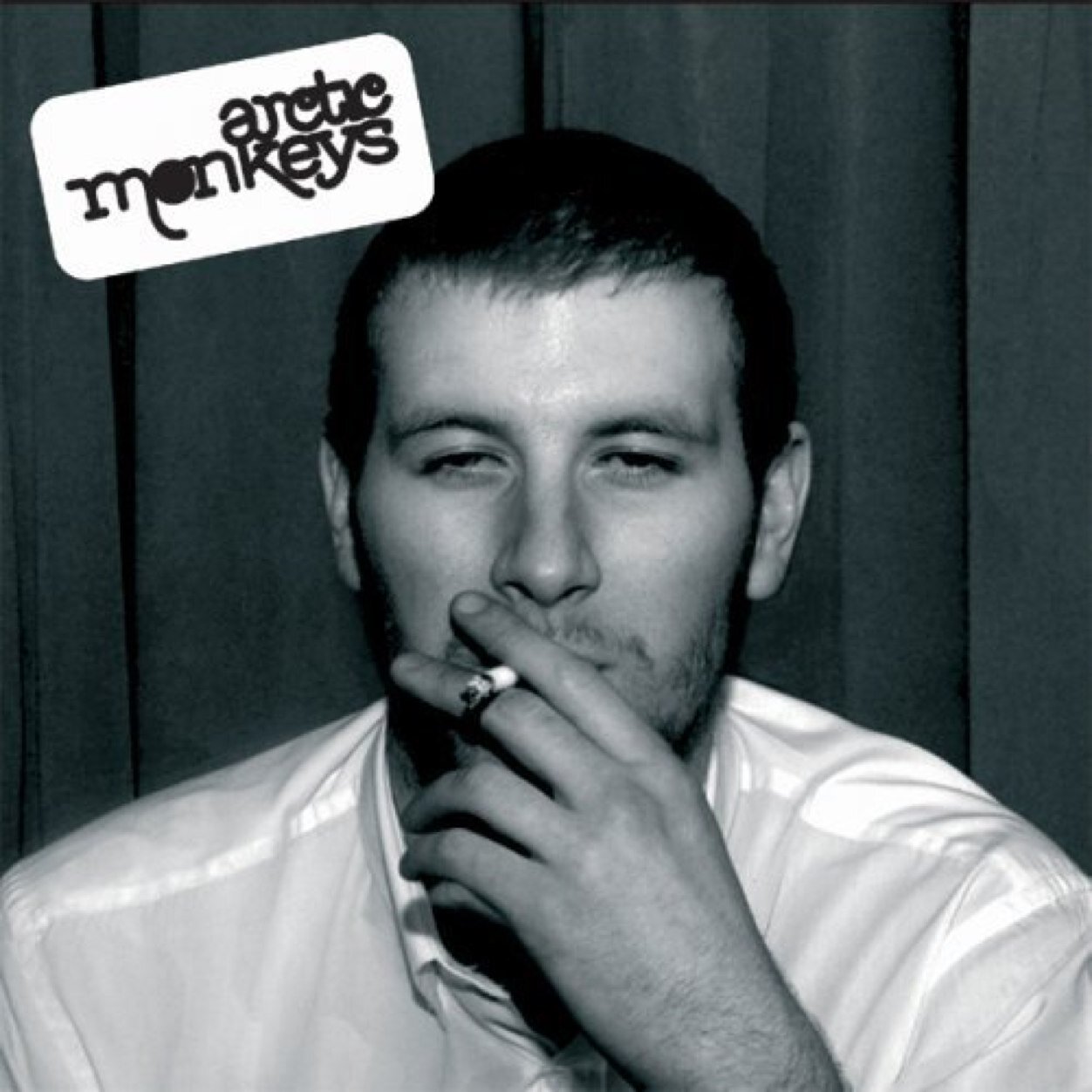I cringe just thinking of the bands I loved as a child. I thought I was cool for listening to Green Day and Good Charlotte, and even cooler – and possibly tough and dangerous – for listening to G-Unit and Bliss N Eso. I distinctly remember peeling the parental advisory stickers off these albums at Sanity so I could get away with listening to lots of swearing. Recounting that is an embarrassing experience.
I was eleven years old when one of my primary school friends told me about a band called Arctic Monkeys to whom his older brother had been listening. I remember my friend eagerly handing me his Discman and headphones. I imagine myself tossing Bliss N Eso’s Day of the Dog across the room, inserting a CD covered curiously in cigarette butts, and pressing play.
Whatever People Say I Am, That’s What I’m Not. What a defiant, obnoxious, immortal title for an album. I thought it was perfect; I still do. The View from the Afternoon begins with some of the most intense drumming I had ever heard, not to mention the cheeky opening line: ‘Anticipation has a habit to set you up/For disappointment…’ , which, given the hype that engulfed Arctic Monkeys prior to the album’s release, was incredibly bold. All of a sudden there was a new benchmark for cool music – Matt Helders‘ fierce, relentless bashing and Alex Turner‘s mesmerising Yorkshire brogue.
I Bet You Look Good on the Dancefloor is, incredibly, even more brash than its predecessor. The music was sufficiently ragged and loud to appeal to my pre-teen conception of cool, but not so violent as to leave me clinging to my dreadful pop-punk comfort zone.
The less frenetic pace of Fake Tales of San Francisco allowed me to contemplate the cornerstone of Arctic Monkeys’ success – their lyrics. In the band’s early days, Turner was essentially writing hip hop-inspired poetry about teenage life in northern England. But what set them apart from other acts was the frank, accurate assessments of Sheffield life and, moreover, the humour with which they were conveyed. I didn’t necessarily understand all of Turner’s quips and references at that age, but it didn’t matter. The lines I did understand made me feel clever or somehow closer to my British roots, even though a middle-class Yorkshire youth was a world away from any life I had ever experienced.
Still Take You Home and Red Light Indicates Doors Are Secured remain two of my favourite cuts from the album; their intensity and swagger, respectively, are irresistible. Wedged between them is Riot Van, a mellow but equally superb reflection of the band’s teenage experiences. It pokes fun at the police and celebrates the innate hedonism of youth in a manner that only Arctic Monkeys can. I didn’t appreciate its wit and brevity nearly as much then as I do now.
Indeed, many of Turner’s lyrical subtleties and societal dissections were decoded as I got older. When the Sun Goes Down, for example, is a song about prostitutes. Lyrics like ‘She don’t do major credit cards/I doubt she does receipts/It’s all not quite legitimate‘ make a whole lot more sense to me now.
Penned by a keen, masterfully observant 19-year-old, Whatever People Say I Am, That’s What I’m Not is an album brimming with personality. It displays cutting intelligence and wit in abundance, held together by the authentic style and musicianship of a carefree and immensely gifted young band.
In personal terms, it was the album that set me straight and opened my eyes to a world of music beyond American Idiot. For that, I am eternally grateful.

